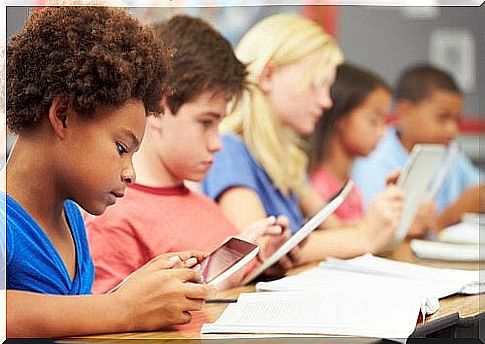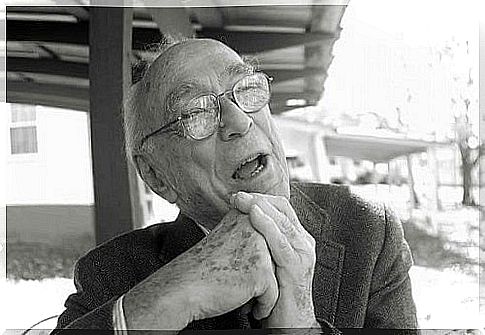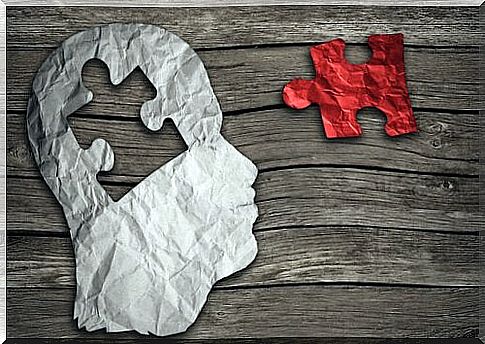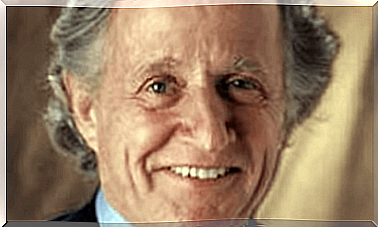Jerome Bruner: 9 Theories For A Better Education

Jerome Bruner is one of the authors of a revolution in cognitive psychology that follows classical computational models (the practical and creative use of digital tools to solve a problem). According to Bruner’s point of view, psychology had lapsed into an exaggerated application of the machine and mechanical model.
To turn this around, Bruner argued for a method based on cultural psychology. His argument was that no brain activity is independent of the social context in which it occurs. Thus, it was impossible for Bruner to understand what is happening in the mind without taking into account the cultural conditions.
Bruner has made great contributions to educational psychology, from cognitive psychology to learning theories. He has dissected the implications of cultural psychology on education. With this analysis, he tried to make changes in an educational system that relied on reductionist (man can be reduced to his basic physical properties) ideas and rote learning. Jerome Bruner wanted a constructivist education that focused on the individual.
With this in mind, Jerome Bruner proposed 9 theories. According to him, educational psychology had to introduce those theories to improve the education system. So we will no longer keep you in suspense. Let’s take a closer look at these theories.

The Educational Theories of Jerome Bruner
Perspectivism
We will first talk about one of the main ideas behind Jerome Bruner’s concepts. He believed that any development of knowledge depends on the perspective from which it is built. So the meanings are not absolute or objective.
After all, they largely depend on the point of view of the person. In order to understand its meaning, this means understanding it along with all the other possibilities. Whether they are right or wrong will depend on the perspective of the context.
The interpretations of meaning will show us the accepted ways in which reality is constructed in a culture. Individuals then interpret those ways through their own cognitive filter. So in the end we all have constructions that are similar and unique at the same time.

The Theory of Constraints
The next theory is about the limitations that exist when we give meaning to something. Jerome Bruner talked about two important limitations that come into play when we give meaning.
- The first limitation is inherent in the way human beings function. Our evolutionary process has specialized us in knowing, thinking, feeling and perceiving in a certain way.
- The second refers to the limitations imposed by the symbolic system. We use this system to perform mental operations. The Sapir and Whorf hypothesis is the basis for this limitation. It confirms that language influences the way you express and formulate your thoughts.
The constructivist theory
When we talk about building up knowledge and giving meaning, we have to start from a constructivist model. Constructivism says that the reality we live in is a construction. In the words of Nelson Goodman, “reality is made, not found.”
Society should base education on how to help children acquire the cultural tools they need to make meaning in a critical and adapted way. So you could say that the education system should develop good architects and builders of knowledge. Education should not transfer knowledge.

The interactional theory
Like any exchange between people, the exchange of knowledge presupposes that there is a community of people who interact with each other. For example, children learn about culture and worldview through their interaction with others. People often say that this interconnected community grew out of the gift of language.
Actually, however, it is a result of the strong intersubjectivity between individuals. The human ability to understand other people’s minds is the basis of this intersubjectivity (the theory of mind).
The theory of externalization
This theory is based on the idea that the objective of any collective cultural activity is to create “projects” or external products. The advantage of an externalizing culture is the creation of a social identity. This identity also promotes collective solidarity.
These externalized works create a group of shared ways of thinking. The use of externalizations (books, for example) is the foundation of the education system. The system uses books to convey how we should act. That in turn depends on the culture in which the education system exists.
The instrumental theory
Education also has consequences. It doesn’t matter how we teach or what culture it is. Education affects the lives of those who receive it. We also know that the consequences for humans are instrumental. At the same time (in a less personal sense) people are also the instruments of a culture and its institutions.
This theory emphasizes that education is never neutral. It always has social and economic consequences. Those consequences have instrumental utility for certain powers or for others. Education is then a political subject in the broadest sense.

The institutional theory
Jerome Bruner’s seventh theory is institutional. He said that education behaves like an institution as it becomes institutionalized in the developed world. However, the role of education sets it apart from other institutions. The aim of education is to prepare children to participate more actively in other activities related to the culture.
As a result, the institutionalization of education has many implications for education itself. The nature of education determines the functions that each player has in education. It also determines the status and respect they receive.
The theory of identity and self-confidence
Perhaps the most universal element of the human experience is the phenomenon of ‘self’. Another way to describe it is ‘self-image’ or ‘self-consciousness’. We know ourselves because of our own inner experience.
We also recognize the existence of other ‘I’s’ in the minds of others. Some branches of social psychology argue that self-consciousness only occurs because the identities of others exist.
Education therefore plays an important role in the formation of self-awareness and self-confidence. That is why it is fundamental that the education system takes into account the consequences of formal instruction on the formation of personal identity.

The narrative theory
Finally, we have the narrative theory. This theory refers to ways of thinking and feeling. It is mainly about the way in which individuals think and feel when they create the individual world in which they live.
A fundamental part of this process, according to Bruner, is the narrative ability when we design stories. In fact, this is one of Bruner’s greatest contributions to psychology. He highlighted the importance of stories in cultural psychology.
People have always assumed that the storytelling ability comes naturally and does not need to be learned. But if you look closely, you will see that this is not true at all. Education changes the narrative quality and ability of people. Therefore, it is important to control the influence that the education system has on the creation of stories.








